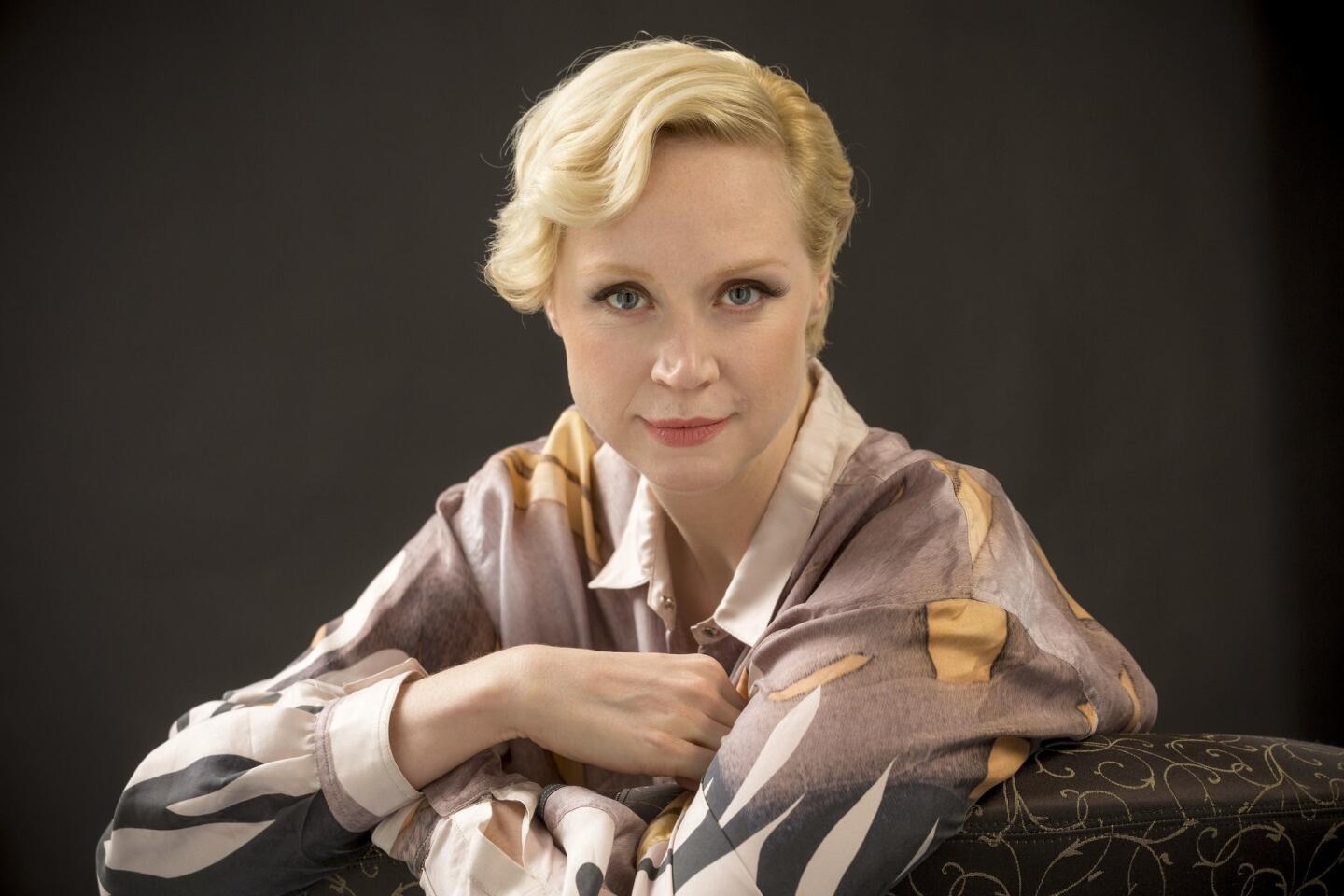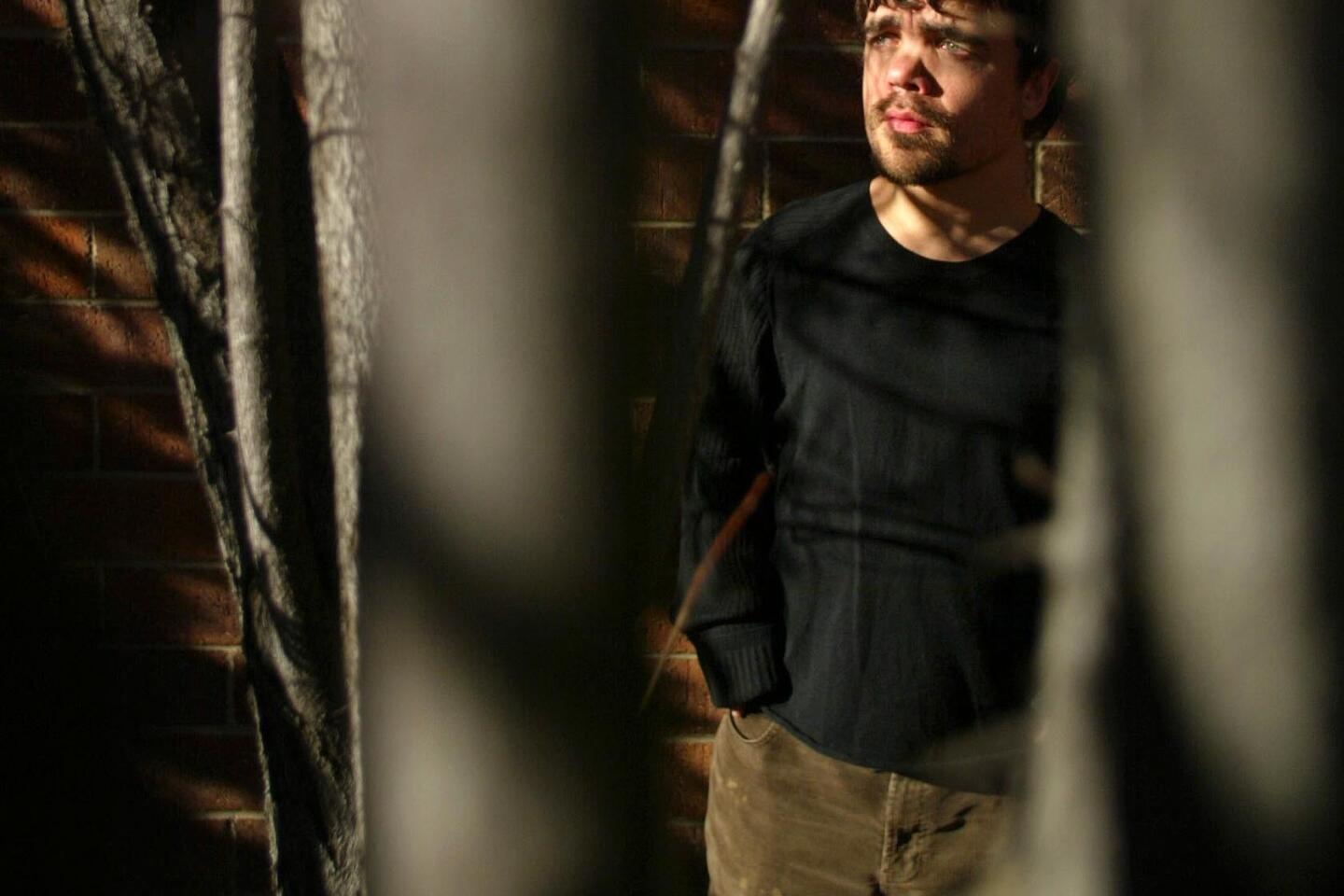Review: In ‘Game of Thrones’ Season 7 finale, women now have a road map to power

Will Bran’s ability to skip around in time prove more useful in the coming war? (Aug. 28, 2017) (Sign up for our free video newsletter here http://bit.ly/2n6VKPR)
During the seventh-season finale of HBO’s “Game of Thrones,” Sansa Stark — once a naive princess with dreams of marrying a handsome prince and becoming his queen — proved herself a ruler in a very different way.
Sansa (Sophie Turner) ordered Lord Baelish (Aidan Gillen), the former brothel owner nicknamed “Littlefinger” and one of the last men with the power to make or break an entire dynasty, to be executed.
In a series where beheadings, impalements and mutilation are as common as goofy sweaters on “The Cosby Show,” it was a moment that stood out given the trajectory of the women on “Game of Thrones” — and the men who tortured them.
This penultimate season found Sansa, her sister Arya (Maisie Williams), Cersei Lannister (Lena Headey) and Daenerys Targaryen (Emilia Clarke) all applying strategies and tactics they’d learned from cruel fathers, violent captors, brutal husbands and deadly manipulators to change their fortunes and those of their followers.
“I may be a slow learner … but I learn,” said Sansa before she had her sister kill the man who tried to divide them. Now she and the other female characters who’ve survived over 67 episodes of rape, slavery and servitude have seized power — and ultimately the narrative — moving into the final season.
And moving it is, fast.
For all the accolades “Game of Thrones” has received since it debuted in 2011, the drama often took its sweet time building up to key battles or explosive moments. Unresolved subplots abounded as still more characters and potential conflicts were introduced. As characters slogged through the mud, it felt as if we too were toughing it out with them.
The same could not be said for this season. Loose ends and scattered story lines finally converged at a record pace: the Stark family reunion, the discovery of Jon Snow’s (Kit Harington) true heritage, Daenerys’ arrival in Westeros after years of strategizing to get there.
And the balance between supernatural and human drama hit a perfect pitch as well. The long-standing tensions between the estranged Lannister siblings and the newly forged alliances of the maturing Stark sisters were just as dramatic and powerful as dragon battles and Bran Stark/the Three-Eyed Raven’s (Isaac Hempstead Wright) time travel.
The next year or so with no “Game of Thrones” is sure to be dark and full of nothing-good-to-watch terrors. But if next season is anything like this year, it’ll be worth the wait.
Though this was the first full season to outpace the George R.R. Martin book anthology, “A Song of Ice and Fire,” it was based upon, the episodes played heavily upon the novels’ themes of hot and cold empires. The stunning finale, “The Dragon and the Wolf,” written by creators David Benioff and D.B. Weiss, found former rivals Jon Snow, king of the icy North, and Daenerys Targaryen, the “mother of dragons,” consummate an undeniable attraction that started early in the season.
The Night King’s frozen army of the dead marched on the wall with its newest weapon — one of Daenerys’ dragons that was killed, then resurrected as a wight — that spits blue flames. In a blazing blue flurry, the beast blasted the last barrier between the dead and all of humanity.
Before falling into bed, Daenerys and Jon did risk their lives trying to convince the conniving queen Cersei Lannister to join forces with them in a battle against the encroaching battalions of dead. Last week they helped capture a decaying wight as proof that the threat was real.
Cersei was presented with the snarling wight and after much convincing, appeared to agree to join forces with the new power couple.
But nothing is ever as it seems with this Lannister, and she has other plans for dealing with the “silver-haired” Daenerys.
Cersei learned from the men who ruled before her: lie to preserve your family legacy, then kill whoever gets in your way.
In her march toward power, the next victim may be her twin brother and lover, Jaime (Nikolaj Coster-Waldau). He believes in a truce to fight the dead; she opposes it, calling him a traitor. It appears the two have finally split ways and will be pitted against each other next season, even though she’s pregnant with his child.
Incest is nothing new for these two, but it is for Jon and Daenerys, who have no idea yet that they are related and that he’s also a true heir to the Iron Throne.
You now have a good long while to think about the uncomfortable talk that awaits them when they return at the earliest in 2018 for the final move on the throne, particularly if they wind up conceiving a child (Daenerys has repeatedly told Jon she can’t have “human” children).
But one thing is for sure: All the previous seasons of wars waged by husbands, brothers, fathers and sons have provided the surviving women of “Game of Thrones” with a road map to power. Their former roles as daughters or sisters sold into bondage or marriage or worse are several muddy roads behind them. They are the future of Westeros.
Will they follow the righteous path of the late Ned Stark (Sean Bean) and perhaps lose their heads in the name of a clean conscience? Or emulate the devious plotting of the late Lord Baelish, using the chaos they create as a ladder to the throne?
Or perhaps this breakthrough series will conclude on an entirely unexpected note, where the kingdom is run entirely on the new ideas of a new set of rulers — the long-suffering women of Westeros.
ALSO:
Aidan Gillen talks about that Littlefinger moment on ‘Game of Thrones’
Nine burning questions we have after the super-sized ‘Game of Thrones’ finale
Watch the ‘Game of Thrones’ cast and crew break down some of Season 7’s best scenes
More to Read
The complete guide to home viewing
Get Screen Gab for everything about the TV shows and streaming movies everyone’s talking about.
You may occasionally receive promotional content from the Los Angeles Times.

































